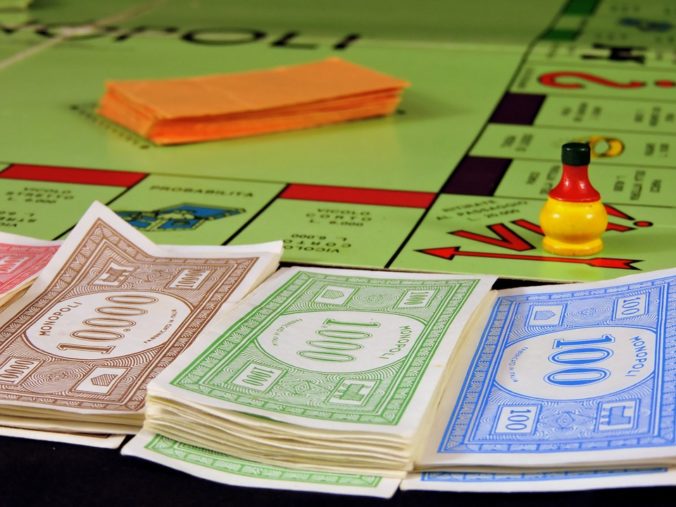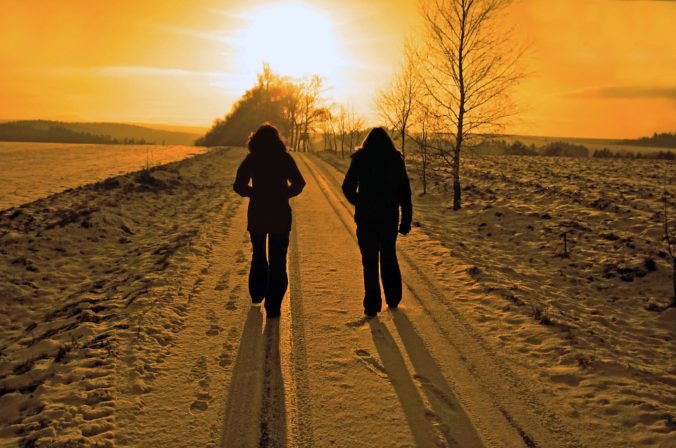We keep a pretty firm rule of One Activity Per Kid around here. This year the girls narrowed it down to either dance or tumbling. Of course, one chose dance and the other chose tumbling. They happen on the same day, starting within a half an hour of each other, making my Mondays the most miserable, mini-van living day possible. I tell people, “Of course, they chose different things, because they hate me.”
When I say that, people will laugh, because I had just personalized something that had zero to do with me. The girls chose the activity they liked best. They did not say to one another, “Hey, let’s see how much time Mom can spend in a minivan just waiting on practices to begin and end!” This is clear to everyone. Even to me.
Yet, there’s a slice of worldview hidden in these dramatic phrases. This kind of humor is funny because there’s a sliver of truth brought to the surface and enlarged for all to see. I love great humorists for this reason – they can expose that which we cannot bear to talk about, making it bearable only with laughter alongside.
I’ve used the same phrase to describe the school system when it takes a professional day following a particular hairy weekend (Halloween, time change, holidays), leaving me to bear my children alone while my husband goes off to studentless work. “They decided to cancel school, because they hate me,” I laugh. It’s not true, but why is it so easy to believe it?
It’s actually an ancient framework of operating in the world. I may or may not have the hobby of reading cultural anthropology textbooks for fun (I know; I’m invited to all the best parties…) and I stumbled upon this idea that the ancient Mediterranean civilizations functioned using the concepts of honor and shame as their basic economy. Rich and poor were pretty much set conditions and while money was helpful and important, society didn’t operate from the numbers. Rather, they used honor as the currency. When you did something good, it brought you honor and honor upon your family, tribe and even nation. This is why we read so much about names and living under the name of someone (God, King David, etc) – to be “under the name” of someone was to share in their honor, the means of mobility within culture. This is how you got to “be someone.”
In the same way our current monetary economy functions, honor was a limited good. In order to gain honor, it had to come from somewhere, specifically someone. To take a person’s honor was to shame him. So if you and I had an interaction and I came away as right, I walked away with some of your honor, and you were left with shame. Now, there were lots of rules about how this little economy worked – amendments about gender and class and who could heap shame on you and how this played out. Everything in the culture operated on this – it was how marriages were arranged, business deals closed -the basic fabric of society.
Quite literally, if misfortune came upon a household, it was believed that someone else was walking away with their good fortune. Shame had come upon them, so someone else must have taken their honor. This invisible, but critical, social good was limited, transient and shaped their lives.
As a 21st century reader, we can believe that’s an archaic and potentially even silly way of operating. Yet, we stumble into it all the time. The guy that just cut you off, the people arriving chronically late and setting your work day askew, the parent that won’t do what they’re asked: it’s easy to begin to believe that their actions come from a place of desiring to see your life worsen. We slip into this ancient pattern of “If my life is harder, someone else’s must be easier.” As if goodness is a scarce element we must horde for ourselves.
Friends, it’s simply not true. When it comes the economy of goodness, we get to make our own money. We manufacture it as much as we spend it and have an endless supply. Try it. Once you start in, I promise that you’ll be hooked. You’ll toss it around like confetti. When you start believing you can give goodness to anyone – an especially those who inconvenience you – without running out, your life will improve significantly.
Walter Brueggeman writes that a big work of Jesus in this world was discrediting the myth of scarcity. The Kingdom of God which Jesus so often spoke of was a place of abundance growing from small amounts. When we start to actually live into those realities, you find how often Jesus was right. We do have enough – so much enough, we can give it away without fear that we’ll run out by losing it to someone else. There is always enough goodness if you choose to live into it.


